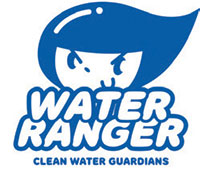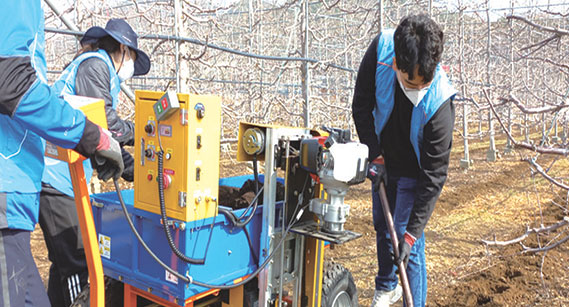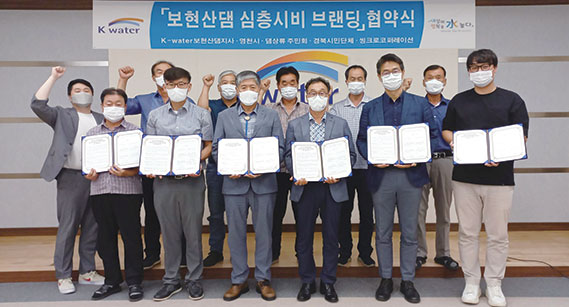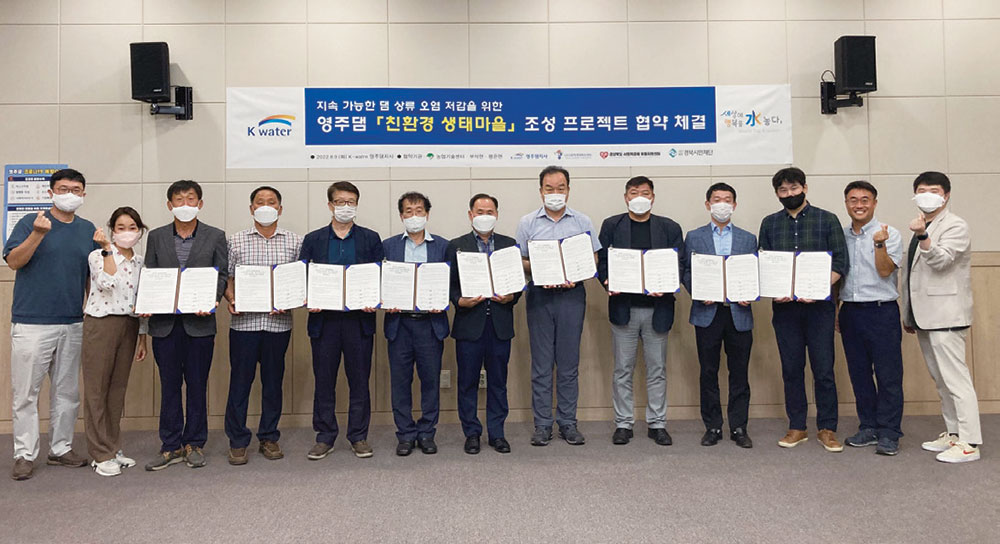-
 2023. January VOL. 658
2023. January VOL. 658

In the local community, Boyeonsan Dam has become an issue due to the algal bloom that occurs repeatedly every year. The main cause was that fertilizers from fruit farms upstream from the dam were washed away by rain and flowed into the stream, causing algal blooms. K-water has been focusing on expanding the distribution of ‘fertilizer deep placement’, which is an eco-friendly farming method, in order to reduce the usage of fertilizers by farmers. Unlike the existing fertilizer method of surface layer application, the fertilizer deep placement method is to spread fertilizer by making holes near the roots of fruit trees, adding compost and covering the soil. It leads to the high absorption rate of nutrients, thereby improving the growth of crops and fruits, reducing the amount of fertilizer used by one-third of the existing method so as to drastically reduce the inflow of pollutants into upstream areas from the dam.
However, only 20% of the residents participated in this method due to anxiety about the new farming method and the labor-related hassles. Therefore, K-water formed a local problem-solving platform together with residents, local governments, and local social economy enterprises, and launched the ‘Fertilizer Deep Displacement Water Ranger’ Project to increase farmers’ participation rate in fertilizer deep displacement method, resulting in fewer algae bloom impacts and new income creation for farmers.
The ‘Fertilizer Deep Displacement Water Ranger’ is a project to help farm produce created from an eco-friendly farming method, fertilizer deep displacement, achieve market competitiveness and secure the market in connection with the ‘value consumption’ trend, resulting in income creation for residents. By improving the awareness of local residents together with social economy enterprises including Y-KNOTS Cooperative, the Rangers spread positive awareness that eco-friendly farming methods are essential and instilled pride in the hearts of residents. In addition, the project supported the achievement of good agricultural practices(GAP) and low-carbon certifications for farmers’ apples produced through the fertilizer deep displacement method to benefit from differentiated competitiveness and expand into new markets through a promotion strategy to lead consumers’ purchases of agricultural products produced from the fertilizer deep displacement method. As a result, it contributed to revitalizing the local economy.
Owing to these efforts, 53% of all farms participated in the fertilizer deep displacement in 2022, showing an increase of about 93% compared to the three-year average, and first-rate water quality was obtained for the first time by this year.
 Fruit farmers performing the fertilizer deep displacement
Fruit farmers performing the fertilizer deep displacement Signing ceremony for the ‘Fertilizer Deep Displacement Water Ranger’ Project Agreement
Signing ceremony for the ‘Fertilizer Deep Displacement Water Ranger’ Project Agreement
Yeongju Dam, which has the highest density of farming livestock in the basin among K-water’s multi-purpose dams, was also experiencing difficulties in water quality management.
The turbid water, which is caused by the inflow of livestock manure and compost from farms to the water in upstream areas from the dam, has been a problem for local communities every year. K-water has been extensively implementing the project to build ecological villages in upstream areas from the dam in connection with a local problem-solving platform composed of mainly residents, in order to venture out of the existing dam water quality environment management system and lead changes in water quality improvement paradigm, leading by local residents.
The project has carried out various activities to support local villages by selecting some ten village areas to focus on controlling pollution in upstream areas from Yeongju Dam, for example a trial operation to apply an eco-friendly livestock manure decomposer*, actively introduce non-point pollutant source management method including environmental improvement of villages. Also, as an incentive of this, promote local special produce, while also supporting villages to obtain eco-friendly agricultural product certifications and instilling pride in residents for their villages through branding the participating villages.
In particular, the ‘Strong Apple Campaign’, which was designed to help residents who incurred losses due to fallen fruits due to Typhoon Hinnamnor, discovered and seized an opportunity to diversify the income of farmers by marketing the fallen fruits with low product value and supporting sales channels. In addition, based on the unique characteristics and culture of the participating villages, various experiments were carried out to revitalize the region through branding villages with storytelling and urban-rural exchanges. As a result of these efforts, the number of villages participating in the distribution of optimal agricultural management methods increased to 17, and more than 98% of local residents expressed their interest to participate in eco-friendly management activities, which led to tangible results.
K-water is suggesting a new paradigm of communication and cooperation by vitalizing the participation of various stakeholders through its local problem-solving platform and creating tangible results for local communities.
* Eco-friendly livestock manure decomposer?
Mixing an Nitrogen & Phosphorus adsorbent(NPA) with cow dung to be used as fertilizer can suppress the outflow of phosphorus(P), which causes green algae, and prevent odors and pests, resulting in improved water quality.
 Presentation for residents on ‘building environmentally-friendly eco village’ at Yeongju Dam
Presentation for residents on ‘building environmentally-friendly eco village’ at Yeongju Dam